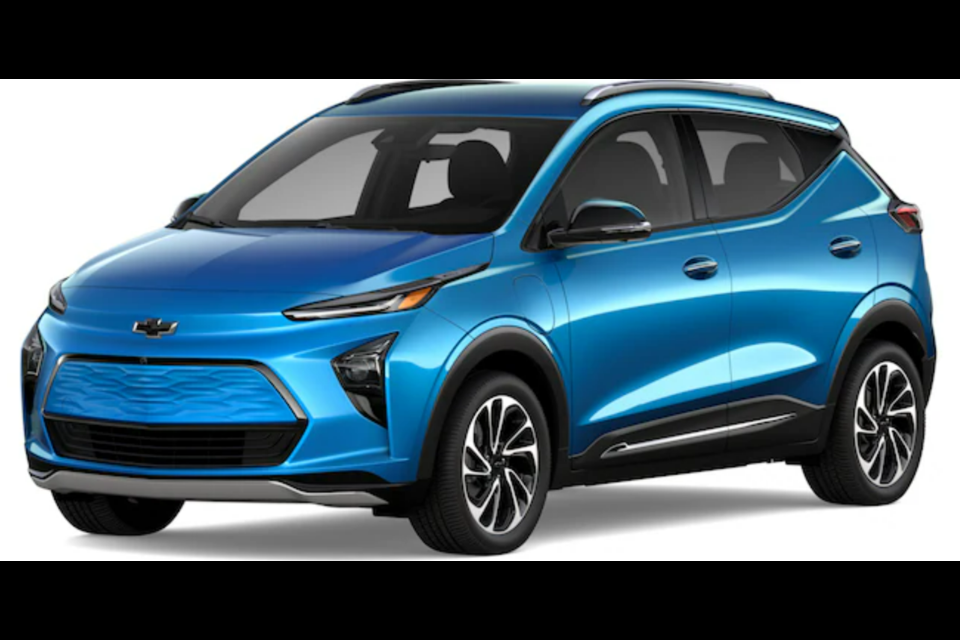It’s not the number the city wants, but it’s something.
After facing multiple delays in procuring electric vehicles, Burnaby now has a contract to purchase 27 EVs for its fleet.
City council approved an order of about $1.28 million from TransCan Leasing Corp. for 27 Chevrolet Bolt EUV (electric utility vehicle) LTs at a meeting on March 28.
“We are cautiously optimistic that they will be able to deliver 27 vehicles during 2023,” the city’s general manager of engineering, Jozsef Dioszeghy, told councillors at the meeting. “And this is actually a far cry from how many vehicles we would ideally like to get in in 2023.”
Dioszeghy said the order for the Bolt EUVs are to replace an order of Kia Souls that wasn’t filled.
He said the city “rightly” anticipated the electric vehicle industry would be able to supply about 100 EVs when the city built its 100-stall EV parking lot.
“Unfortunately, that did not happen,” Dioszeghy said. “In fact, the chosen supplier at the time, this year didn’t even respond to our tender call. And so that’s why the best we can do, at this point in time, (is) to make an agreement with another supplier for 27 electrical vehicles for 2023 delivery.”
The city, along with many consumers, has run into issues purchasing electric vehicles.
In 2021, the city purchased and received nine Kia Soul EVs, but in 2022, a request for 15 more Kia Souls “received no bids due to lack of market availability,” according to Cole Wagner, city public affairs officer.
In 2023, the city requested proposals for 30 Kia Niros, or an equivalent alternative, and TransCan Leasing bid with the 27 Chevy Bolts. That was the bid accepted by council in March.
The city hasn’t paid for any vehicles that weren’t delivered, Wagner added.
The city’s fleet had about 760 vehicles total, according to city reports from December of last year.
TransCan Leasing advised the city, according to a staff report, that the vehicles might not be delivered at the same time due to “global supply chain issues” and noted it’s possible some of the 2023 models will be converted to 2024 models “dependent upon availability at time of ordering and delivery.”
City staff will seek potential rebates from higher levels of government.
Are the EUVs the best choice?
Burnaby Citizens Association Coun. Alison Gu asked if those Bolt EUVs were the best option for the city’s fleet.
“Why the EUV version?” Gu asked. “It’s a crossover; it’s larger; it’s more expensive. Why not just go with the Bolt? My understanding is that the city doesn’t necessarily need a big trunk space.”
The Bolt EUV is a compact crossover, and the Bolt EV is a hatchback.
Dioszeghy replied staff had been concerned whether the vehicles would be big enough.
“It’s really not just transporting one or more passengers, but also we have equipment, and we have drawings that under many circumstances, on site, we have to have enough room to open it and look at it,” he said, adding a smaller, regular Bolt “would not be adequate.”
Gu noted Vancouver’s fire department drives “tiny little smart car electric cars.” (Vancouver has one of the world’s first electric firetrucks.)
“I don’t want us to go beyond our means,” Gu said.
“I’m just amazed that we can find 27 electric vehicles of any kind,” Mayor Mike Hurley said.





